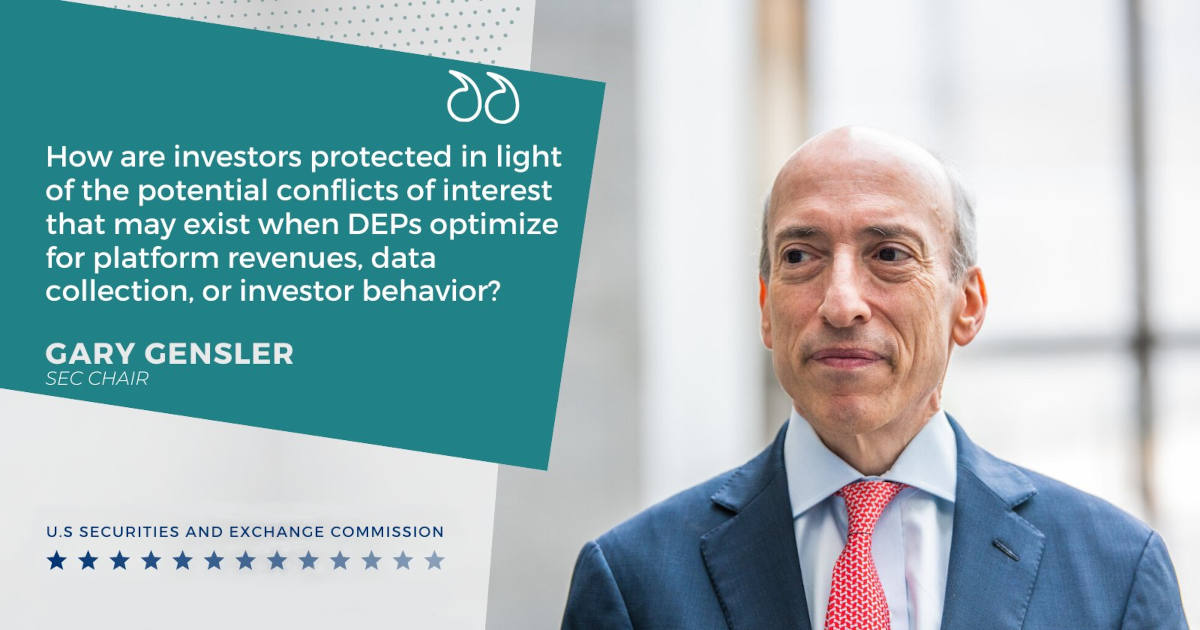Brokerage App Coercion? The SEC Wants You to Share Your Experiences
Stockbrokers, as part of their basic description, do not provide investment advice or portfolio management. The SEC is acting to determine whether the practices of brokerage apps such as eToro or Robinhood Cross that line. As important they are also seeking advice from professionals and retail customers to help identify where the lines should be drawn.
Background
Over 20 million new accounts have been opened at U.S. brokerages since January of last year. A substantial number of these account owners had never transacted in the securities markets before. New investors are more likely to rely on tools on the app, consult social media forums, and YouTube channels for advice – and otherwise learn through trial and error.
The Securities and Exchange Commission has as its top two priorities to protect investors and maintain fair, orderly, and efficient markets. The rapid pace of technological change, coupled with an industry that flourished as people stayed home from work while receiving stimulus checks, has the SEC playing catch-up on designing rules and standards to protect investors and to ensure fairness.
Keeping in mind that brokers are not advisors; that is, they are there to execute with your best interest in mind, but not to give advice, the SEC opened a comment period on the bells, whistles, pop-ups, and other rewards and inducements on these brokerage sites. For example, eToro allows the ability to copy portfolios of other traders. Does this cross the line into giving investment advice? Robinhood had a digital “scratch-off” where account owners could get a free stock share. The SEC is moving to determine if some digital engagement practices (DEP) are actually investment advice.

Source: SEC Press release dated 8/27/21
SEC Policing Digital Cues
An SEC panel met Thursday (September 9) to discuss digital cues from online brokers to determine if they may potentially harm investors by coaxing them to make decisions that end up costing money. Also, to address the rise of new ways to buy stocks, options, and other public market securities.
There were two major conclusions from the panel meeting. First is that an in-depth analysis could put the SEC in a unique position to review the technology used by brokerage firms and investment advisors to reach customers and track their actions. The other conclusion was that policing digital cues is complicated, and perhaps impossible.
Before New Rules are Set
The SEC is entering into a public comment period to hear the broader open discussion before proposing any new regulatory guardrails for online trading and advisory apps. The reach of any new rules could also impact the so-called robo-advisors like Wealthfront and Betterment and more traditional online brokers that have adopted some of the newer business practices.
Take-Away
The impact of digital engagement such as alerts, prompts and prizes that many new stock traders encounter online is not easy to determine. If clearer guidelines are not set, we may see legal cases deciding this using Regulation Best Interest which says that brokers and advisors have to do what is in their client’s best interest.
Some prompts on platforms are there to help increase transactions; does that make it a recommendation? Can these be considered manipulative? The comment period to the SEC ends October 1st, 2021. They have asked retail investors with experience with online investment platforms to share those experiences using
this questionnaire.
Suggested Reading:
 Will Robinhood Be Fined on Charges of Gamification?
|
 Coinbase Receives an Enforcement Letter from the SEC
|
 New Jersey Issues Cease and Desist Order on Crypto Payments
|
 Can You Invest in Uranium Directly?
|
Sources:
https://www.sec.gov/news/press-release/2021-167
https://www.sec.gov/rules/other/2021/34-92766.pdf
https://www.barrons.com/articles/brokers-bells-and-whistles-can-harm-investors-sec-panel-finds-51631222273?mod=hp_LEAD_2_B_2
Stay up to date. Follow us:

|
